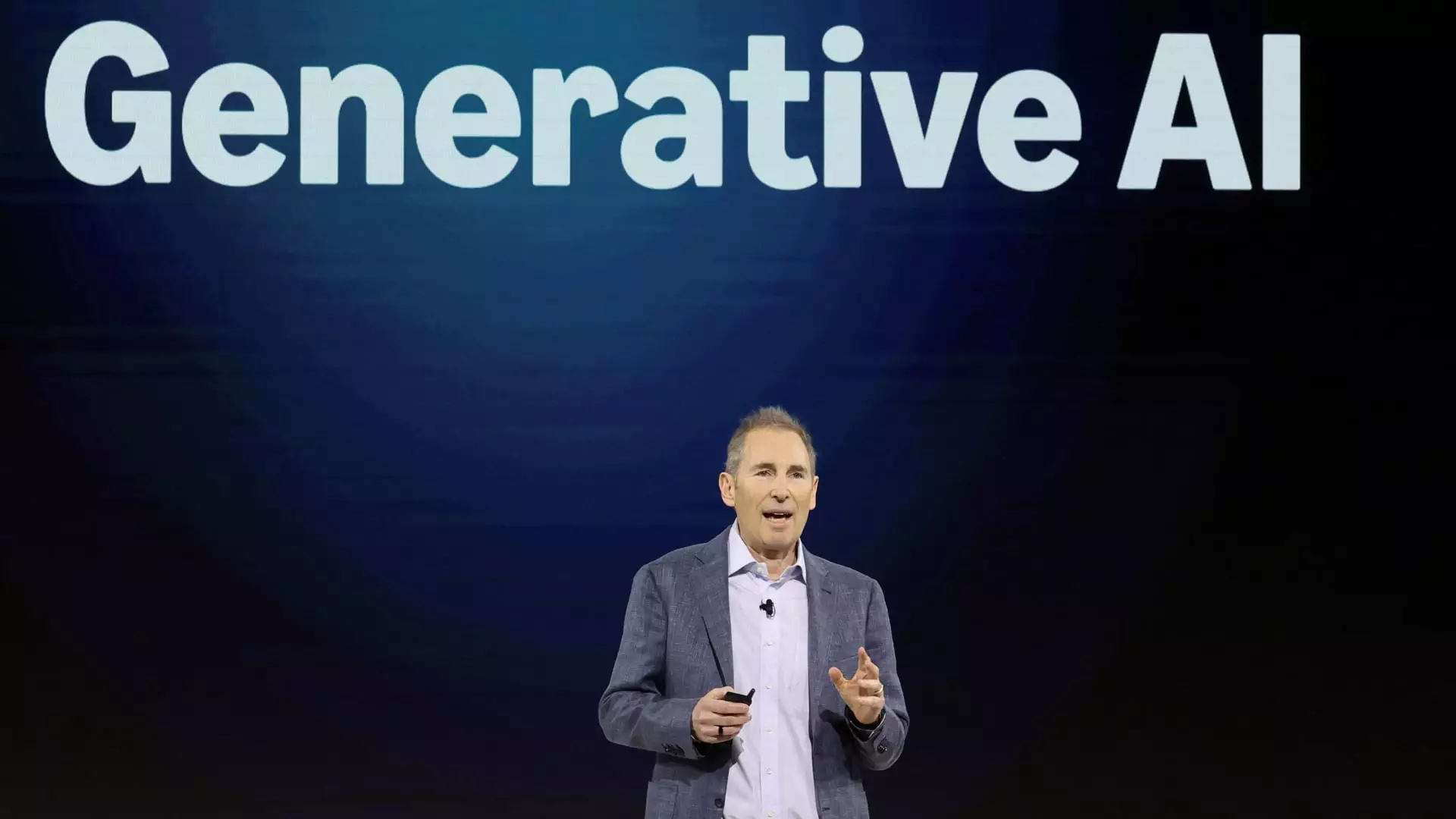In a world where digital experiences dictate customer interactions, Amazon has stepped onto the stage with ambitious plans to integrate generative artificial intelligence (AI) across its vast e-commerce ecosystem. Testing innovative applications like Interests AI and Health AI, Amazon is making a bid to revolutionize how consumers interact with its platform. This move reflects a deeper trend—the marriage of consumer behavior with tech advancement aimed at simplifying decision-making and enhancing user experience. But while the race for AI integration seems thrilling on the surface, it significantly raises the stakes regarding data privacy and ethical consumerism.
Interests AI: A Tailored Shopping Assistant
The Interests AI feature, recently revealed in Amazon’s app, prompts users to describe what they’re searching for in their own words. This development could prove to be a game-changer in how people find products, moving from rigid keyword searches to more fluid, conversational inquiries. Instead of merely typing “coffee maker,” users could express their needs more creatively, like “best gadgets for brewing coffee,” allowing the AI to curate product selections tailored to individual preferences. Yet, one can’t help but wonder: how much of our language will this AI really understand? Will it lead to a deeper connection between consumer and product, or just exacerbate the rising tide of algorithmically curated experiences that often miss the mark?
Health AI: A Double-Edged Sword
With AI-driven initiatives extending beyond shopping, Amazon’s Health AI has emerged as another noteworthy offering. This chatbot aims to provide health and wellness guidance, not personalized medical advice, due to legal and ethical limitations. While it serves a practical purpose by suggesting products for minor ailments and directing users to reputable online medical services, there are legitimate concerns about data privacy. In a healthcare landscape marred by distrust, relying on a tech giant for wellness insights could seem unsettling to many. As Amazon delves into this sensitive realm, it bears the responsibility of ensuring transparency and trustworthiness in its health-related offerings.
Integrating AI Across Services: A Comprehensive Strategy
What’s particularly striking about Amazon’s approach is its breadth. CEO Andy Jassy revealed a staggering number of AI applications in development, some 1,000 across various business segments. This extensive commitment to AI isn’t merely about tinkering with the shopping experience; it’s a holistic strategy that encompasses retail, cloud services, and healthcare. Through the deployment of generative AI, Amazon appears set to refine its existing services and possibly upend competitors who haven’t yet grasped the profound implications of this technology. However, one must ask—will this relentless expansion benefit customers or merely bolster Amazon’s monopolistic tendencies?
Alexa and the Future of Home Assistance
In tandem with these developments, Amazon announced the upcoming Alexa+—a more advanced version of its voice assistant designed to undertake complex tasks autonomously. This concept of a digital “agent” capable of taking actions on behalf of the user raises exciting prospects but also essential questions. How much personal autonomy are we willing to relinquish in pursuit of convenience? If Alexa+ integrates functionalities from both Interests AI and Health AI, will users receive more comprehensive assistance, or might it inadvertently edge into realms traditionally upheld by human interaction?
The Competitive Landscape: A Fierce Battle for Consumer Trust
As generative AI rises in popularity among consumers, Amazon’s ventures into this space seem poised to outshine competitors like OpenAI’s ChatGPT. The implications of users opting for Amazon’s services over other AI-driven platforms will shape the evolving e-commerce landscape. Continuous usage of these features could provide Amazon with critical data on human-AI interaction, potentially refining their offerings further. However, it’s vital to scrutinize whether this pursuit of insights serves consumers or simply feeds into an ever-expanding data collection machine controlled by corporate interests.
In an age marked by accelerated digital transformation, Amazon’s moves toward AI integration signal significant shifts that could alter consumer habits, prompt questions about trust, and unveil ethical dilemmas around data usage. While the expanded capabilities may enhance the shopping experience dramatically, a nuanced conversation must accompany these advancements, ensuring that the user’s well-being is prioritized amid a whirlwind of technological innovations.

Leave a Reply